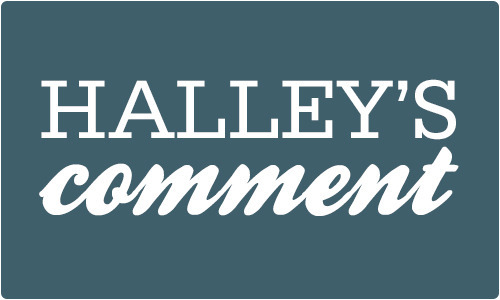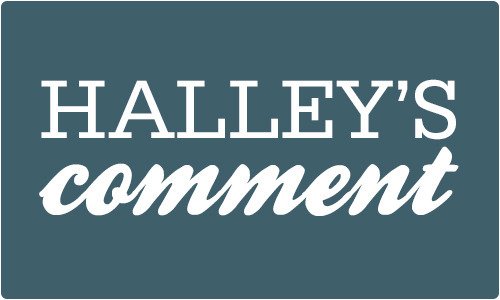Susan Scott's Blog, page 86
April 30, 2014
Today is National Honesty Day
Today is National Honesty Day and, managers and leaders everywhere have an opportunity to evaluate the role honesty plays in their workplace. Despite data showing overwhelming support for more honest workplaces, lack of candor continues to cast a dark shadow over many organizations. According to Fierce, Inc., leadership development and training experts, National Honesty Day is a useful reminder to leaders to proactively cultivate a culture of honesty.
Honesty is simply good for business. Companies that foster and encourage honest feedback make more money than companies who don’t. According to a 2010 Corporate Executive Board study, companies that encourage open and honest feedback among employees experienced superior shareholder returns over a ten-year period, outperforming other organizations by 270%.
In light of these figures, the number of workplaces suffering from a lack of candor is astonishing. Fierce, Inc. surveyed over 1,400 executives and employees, finding that 70% of respondents believed a lack of honesty impacted their company’s ability to perform optimally.
Fierce has helped many organizations transform their cultures by emphasizing the importance of honest conversations in the workplace. Here are four tips from Halley Bock, president and CEO of Fierce, Inc. on how to promote candor.
Proactively Solicit Feedback – Honesty doesn’t simply happen organically. Often, employees do not speak up, and when they do, they may abstain from sharing their true feedback out of fear of reprisals. Managers must proactively encourage employees to be forthright and reward them for doing so.
Be Receptive and Cool-Headed – Managers receiving feedback can become defensive, especially if one of their ideas is being challenged. Other times, they instantly shoot down new ideas. As a result, employees become discouraged and are less likely to be honest in the future. Managers need to develop the discipline of listening openly to feedback, even when it doesn’t conform to their notions.
Choose Honesty over Politeness – False professionalism is the scourge of many companies. Being polite, politically correct, or sensitive to other people’s feelings to a fault shouldn’t be an organizational priority. Instead, leaders must foster an environment where respectful, healthy debate is highly valued, and staff members are encouraged to take ownership of their failures as well as their successes.
Bust those Mokitas – A Papua of New Guinea term meaning “that which everyone knows and no one speaks of,” aka “the elephant in the room,” Mokitas are business and culture crushers. Only leaders who dedicate specific time and team energy identifying and confronting Mokitas are able to eliminate them.
These tips will do more than increase productivity and profits. They will strengthen ties between co-workers, increase morale, and create a healthier, more productive workplace.
April 28, 2014
Fierce Tip of the Week: Choose Honesty
Does your company have an honest culture? Do you show up authentically each and every day? Why should you?
Halley Bock, CEO of Fierce, Inc. wrote an article titled Why Honesty is the Secret Ingredient of Successful Organizations in the The New Talent Times. In it, Halley stated:
“The success of an organization is closely related to an honest company culture. And here’s the proof: A 2010 Corporate Executive Board study found that companies encouraging open and honest feedback among its employees experienced superior shareholder returns over a ten year period, outperforming others by 270 percent…Impressive numbers, but do they hold up? To find out, Fierce, Inc., a leadership consulting firm, conducted its own research. The firm surveyed over 1,400 executives and employees, finding that the vast majority – 99 percent – preferred a workplace where staff members were able to discuss issues truthfully.”
This week, brainstorm and concentrate on ways that you can be more honest – as a team member – and an organization.
As we contend, it will pay off in more ways than you may think.
April 25, 2014
Fierce Resources: Top 5 to Thrive from WiRL Founder
This week’s Fierce Resource was first published on WiRLSummit.com and was written by Mitch Shepard, Founder & Creative Force behind Women in Real Life (WiRL).
Top 5 To Thrive shares powerful and practical steps to building a successful career and life with intention. The key to evaluating what is real today begins with the conversations you have with yourself. Although these conversations are sometimes easier to push aside, once we dig in we find comfort in knowing.
“Whether you realize it or not, the things you value most are RUNNING YOUR LIFE. If you’re living true to your TOP values, you likely feel a sense of ease, peace of mind, happiness and confidence when making decisions. If you’ve strayed from your most cherished values, you may be feeling sad, guilty, overwhelmed, conflicted and/or unfulfilled. Can you see how there’s great power in knowing explicitly what your values are? The knowledge will allow you make sound decisions, live a life that’s meaningful, have less regret and guilt, and feel more at peace with your life and your next career move. Can you articulate the top 5 values that drive you?”
To read the full article, click here.
Fierce, Inc. is proud to announce that our Founder, Susan Scott and President & CEO, Halley Bock will be speaking at the Women in Real Life Online Leadership Summit beginning April 28th – May 24th. Learn more.
April 23, 2014
The Conversation Continues: Building Productivity Through Conversation
In a world moving as a fast as ours, who doesn’t wish they could just snap their fingers and create more collaboration, innovation, and productivity within their teams? Even if you tried to streamline the process and assemble all your top performers into one team, this does not guarantee you a productive team.
Why?
Productive teams don’t get to the next level simply by increasing proficiency on an individual level. Team success relies on the ability to collaborate and work together as a unit.
So how, as a leader, do you build this type of fruitful unity?
You have the conversations.
At the helm of every productive team are leaders who take the time to coach, confront, solicit perspectives, and have all the necessary conversations to develop those who they lead.They’re tireless in their quest to be a resource and realize that individual strength means very little if the collective is failing.
What conversations are you having to make your teams stronger?
This piece was originally posted on March 14, 2013 by Jaime Navarro. The conversation is still around how to best build productive teams…What do you think?
April 21, 2014
Fierce Tip of the Week: What Are You Producing?
How often do you find yourself with a giant to-do list on Monday morning and only a few items checked off by the end of the week?
As Susan Scott, Founder of Fierce, Inc., referenced in the main article here, it is powerful to focus on one thing.
This week, focus on the most important one or two tasks. Make them big. Don’t get sidetracked by all the tangents.
“Until you quiet the resistance and commit to actually shipping things that matter, all the productivity tips in the world aren’t going to make a real difference,” said Seth Godin.
So, what will you be focusing on? How will you overcome what may get in your way?
April 18, 2014
Fierce Resources: 3 Ways to Work Meditation Into Your Busy Day
This week’s Fierce Resource was first published on Inc.com and was written by Jessica Stillman.
3 Ways to Work Meditation Into Your Busy Day shares techniques on how to be mindful and incorporate more meditation into your days. Although it may seem impossible at times, there are small ways to help breakthrough the noise.
“No doubt you’ve noticed that mindfulness and meditation have moved out of the monastery and into corporate America. The topic is so hot that Wisdom 2.0, a conference, started in 2009, dedicated to exploring how to be more mindful about our technology use, now has a waiting list that runs into the hundreds. There are meditation apps galore, and organizations from Google to the Marine Corps have embraced the idea of promoting mindfulness. Some longtime meditators and Buddhists are even complaining that this new frenzy is corrupting the real meaning of mindfulness.”
To read the full article, click here.
April 16, 2014
7 Ways You’re Unconsciously Undermining Yourself
Fierce CEO, Halley Bock, was quoted in this Fast Company article by Gwen Moran. It was originally posted here.
People are judging you.
It’s not fair, but when you start to progress in your career, your moves come under scrutiny. And you could be undermining yourself without even realizing it.
“There are definitely things that people do that can make others think they’re ineffective leaders and they’re not always aware of them,” says Halley Bock, the president and CEO of Fierce, Inc., a leadership development and training firm based in Seattle.
So, even if you think you’re doing everything right, check yourself for these seven areas that can be harming your well-crafted image.
1. You look like you’re not listening.
Being a poor listener can manifest in a number of different ways, including checking your phone while someone else is speaking, staring off into the distance, or just clearly not following along with the conversation, Bock says. People resent when their thoughts or input is treated as unimportant, which erodes your influence–plus, you’re possibly missing valuable information that can help you lead more effectively.
2. You don’t follow through on promises.
If you say you’re going to do something, do it or risk losing your credibility as a leader, says Jené Kapela, founder of Fort Lauderdale-based Jené Kapela Leadership Solutions, LLC. Leaders need to be trustworthy, and “people won’t trust you if you don’t follow through,” she says.
3. You use the wrong tone of voice.
Once you open your mouth, people are forming opinions about your trustworthiness, dominance, attractiveness and warmth in half a second. In a March 2014 study published on online journal PLoS One, researchers at the University of Glasgow and Princeton University found that in the time it takes you to say “hello,” many have already sized up key aspects of your leadership quotient–often in as little as 300 to 500 milliseconds.
4. You fidget too much.
Wiggling your foot, tapping your pen, drumming your fingers all seem like minor transgressions, but being fidgety can indicate you’re nervous or uncomfortable and not suited to the role of a leader, Bock says. If you notice yourself doing these things, work on controlling them–at least in settings when you’re trying to exude confidence and competence, she says.
5. You make too little (or too much) eye contact.
Whether it’s a one-on-one conversation or a presentation to 100 people, we know it’s essential to make eye contact to establish trust and exude confidence. But don’t go overboard, Bock says. Too much eye contact can range from seeming mildly creepy to downright aggressive.
6. You are too self-confident.
While some narcissistic traits can help you command respect and influence for your bold vision and self-esteem, too much has the opposite effect. In a 2013 study published in the journal Personnel Psychology, researchers at the University of Illinois at Urbana-Champaign and the University of Nebraska found that narcissists often emerged as leaders, but if they couldn’t keep their feelings of self-importance and lack of empathy in check, they eventually lost their influence and were seen as exploitative and arrogant–the antithesis of good leadership.
7. You’re everybody’s friend.
Effective leaders are often warm and accessible, but beware of becoming too friendly or accommodating, Kapela warns. Leaders need boundaries, especially in the workplace. People are going to have trouble trusting you or looking to you for guidance if you exhibit poor judgment yourself, such as engaging in office gossip or drinking to excess at company functions, she says.
“It goes back to professional behavior. Be consistent and authentic and people will respond to you for that and have respect for you as opposed to, if you’re being a friend to someone and then making poor decisions as an employee,” she says.
April 14, 2014
Fierce Tip of the Week: Practice Mindfulness
The aim of life is to live, and to live means to be aware, joyously, drunkenly, serenely, divinely aware. – Henry Miller
It is so easy in this busy, nonstop world to always keep moving and not pay attention while we do it. We can go from one place to another – constantly checking off our “to-do’s”. We’ve all been there. And yet, the problem is when we stay there, when we auto-pilot through our lives.
There are a lot of reasons that we can use to justify this as okay. However, deep down, we are making compromises for our health – for our mental and physical well-being. You deserve more, and so do others around you.
This week, focus on being aware. Be aware of the relationships around you. Be aware of how you feel. Listen to the sounds around you.
Take some time to pause and just be.
How will you practice more mindfulness?
April 11, 2014
Fierce Resources: Improve Decision-Making With Help From the Crowd
This week’s Fierce Resource was first published on the Harvard Business Review website and was written by Brad Power.
Improve Decision-Making With Help From the Crowd explores how leaders can integrate crowdsourcing into their management processes. There are three core frontiers that can be explored: funding decisions, new product development, and prioritization of projects.
“This revolution in decision-making processes will challenge conventional management approaches and shift power from your current leaders to employees and customers. It will surely meet resistance. The critical question is, will today’s leaders be willing to give more say to employees and customers, as IBM and Valve have? It will take trust in the cumulative wisdom of your customers and employees. For many organizations, this may take a long time, but for some, the revolution is already underway.”
To read the full article, click here.
April 9, 2014
What March Madness Can Teach Us About Leadership
Fierce CEO, Halley Bock, is currently writing a column for Business 2 Community. We wanted to share with you her most recent article, published Thursday, April 3rd.
It’s Spring. The season when new life is celebrated, long-dormant plants start to blossom, and March Madness grabs hold of us like the intoxicating smell of daphne in bloom. Yes, my friends, it’s time to play. And like any well-meaning boss and reasonable citizen of society, I participated in the March Madness office pool and turned in my bracket even though I had absolutely no idea what I was doing. Or did I? I don’t follow college basketball but team rankings were provided on my bracket, which I assumed were created by experts squirreled away in the depths of one of our most illustrious institutions of higher learning.
Based upon that expert information, filling in my bracket seemed fairly simple – just pick the higher-ranked team and work my way in from there. I mean, come on! #3 Duke playing #14 Mercer? Isn’t that called a “bye?” I used logic based upon the facts that were presented to me. I confidently stuck my $5 in the pot.
And then the games began and strange things happened. Inexplicably, brackets were busted. Teams from nowhere were showing up with ranking-upsetting outcomes in mind. Upset after glorious upset occurred. How could this happen? And what does this have to do with leadership? A lot, actually.
Too often, leaders assume black-and-white facts and figures – simplistic formulas – are the answer to all their questions. Alas, humans – the very people who comprise our teams – tend not to operate so predictably or simplistically. Just as we could ask ourselves what we should have known about Dayton or Mercer, we could and should ask similar probing questions about our own teams.
If I were to break it down into one tip that could have saved my $5 Tourney wager and may save your high-flying business plans this year, it would be this: Don’t assume anything!
We’ve all heard the ancient bromide: “When you assume, you make an ass out of you and me.” While this saying may be irritatingly predictable, it’s simply true more often than not. When we close off the conversation with others and lock ourselves up in our own thoughts and ponder limited information, scary things happen. One being that we draw conclusions that couldn’t be farther from the truth!
To understand how our teams are doing, we need to ask probing questions, and ask them often. Gallup’s latest “State of the American Workplace” survey notes that companies with higher engagement can experience up to 147% higher earnings than their less-fortunate counterparts. Connecting with your team has tangible benefits.
What questions should we ask? Start with these:
What can I do as a manager to better support you?
Where do you see opportunities for efficiency and productivity gains?
What ideas, big or small, will improve communication among the team?
Next time you’re in a 1:1 or a meeting with your team, ask how they’re doing. And I mean how they’re REALLY doing. Ask how you’re doing as their leader. Ask if there’s anything you should be aware of or a way in which you can support them better. If you sense an undercurrent or you feel something isn’t being said, invite that in. Let there be silence when you pose the questions and make sure your team is doing most of the talking. If you’re mouth is moving a lot, you’re probably defending. Remember, this is not about stroking your ego. This is about getting to the ground truth so you can base your strategies on reality, not fantasy.
Which reminds me, when does fantasy football start?
Susan Scott's Blog
- Susan Scott's profile
- 861 followers













